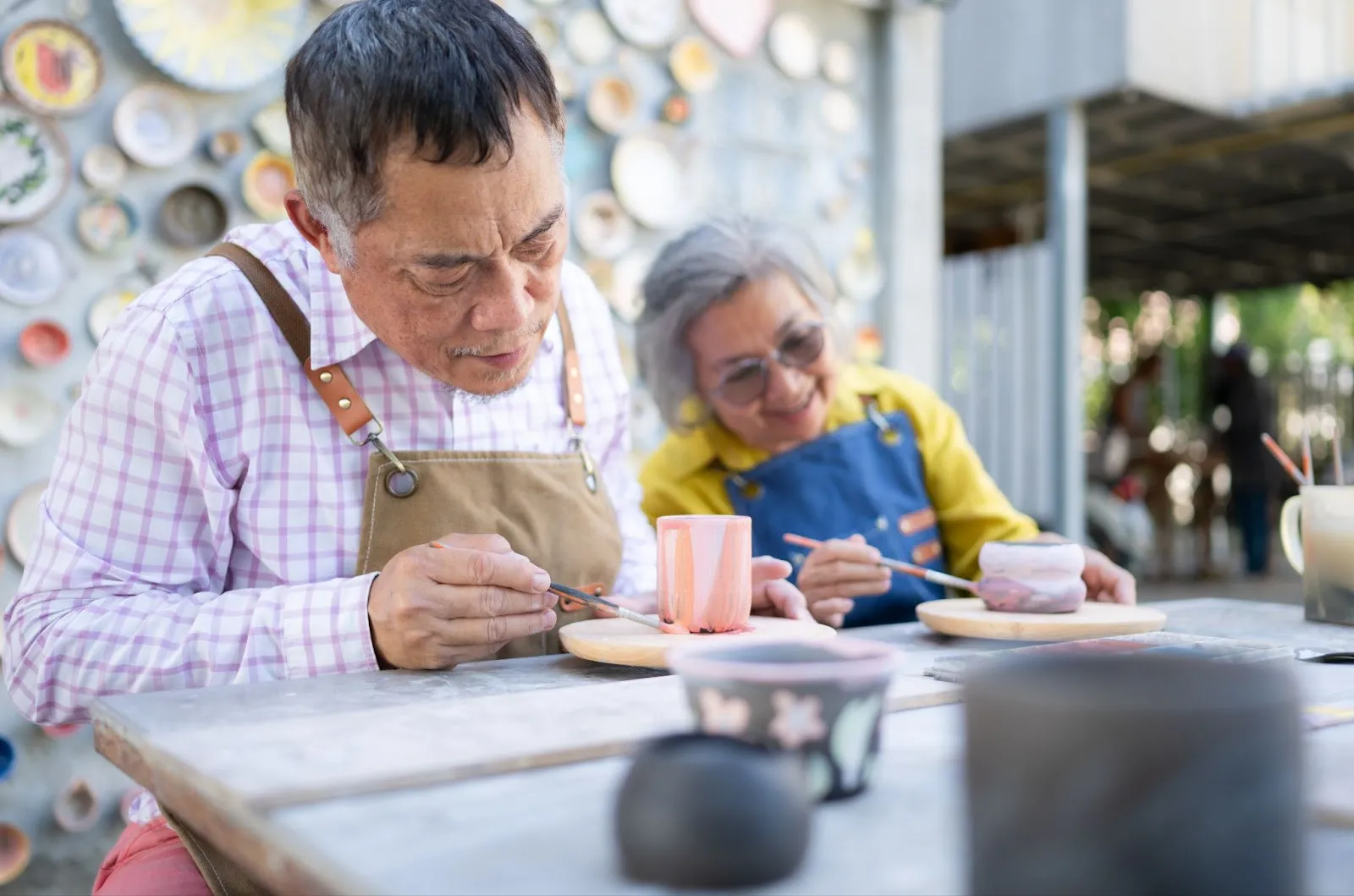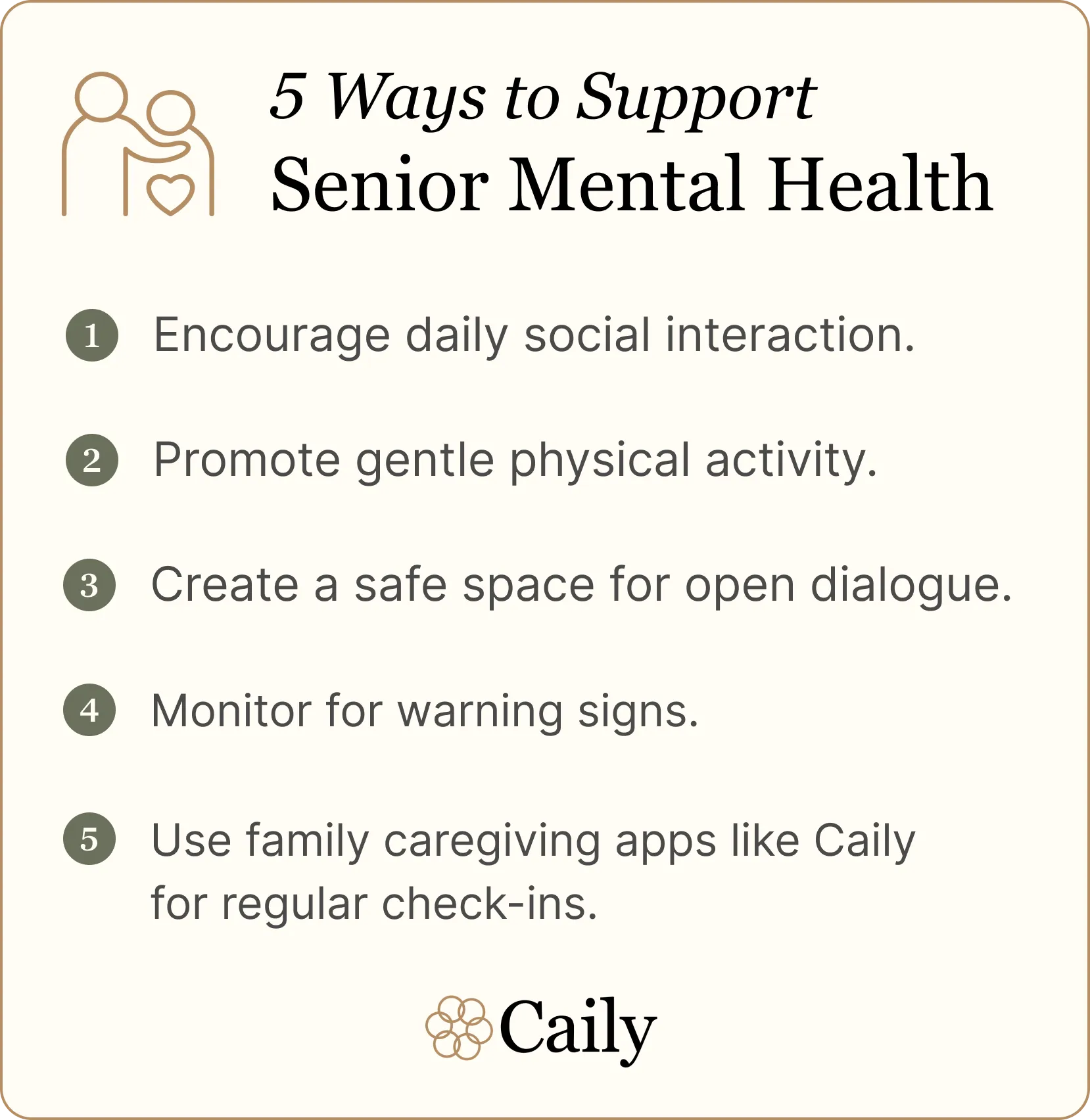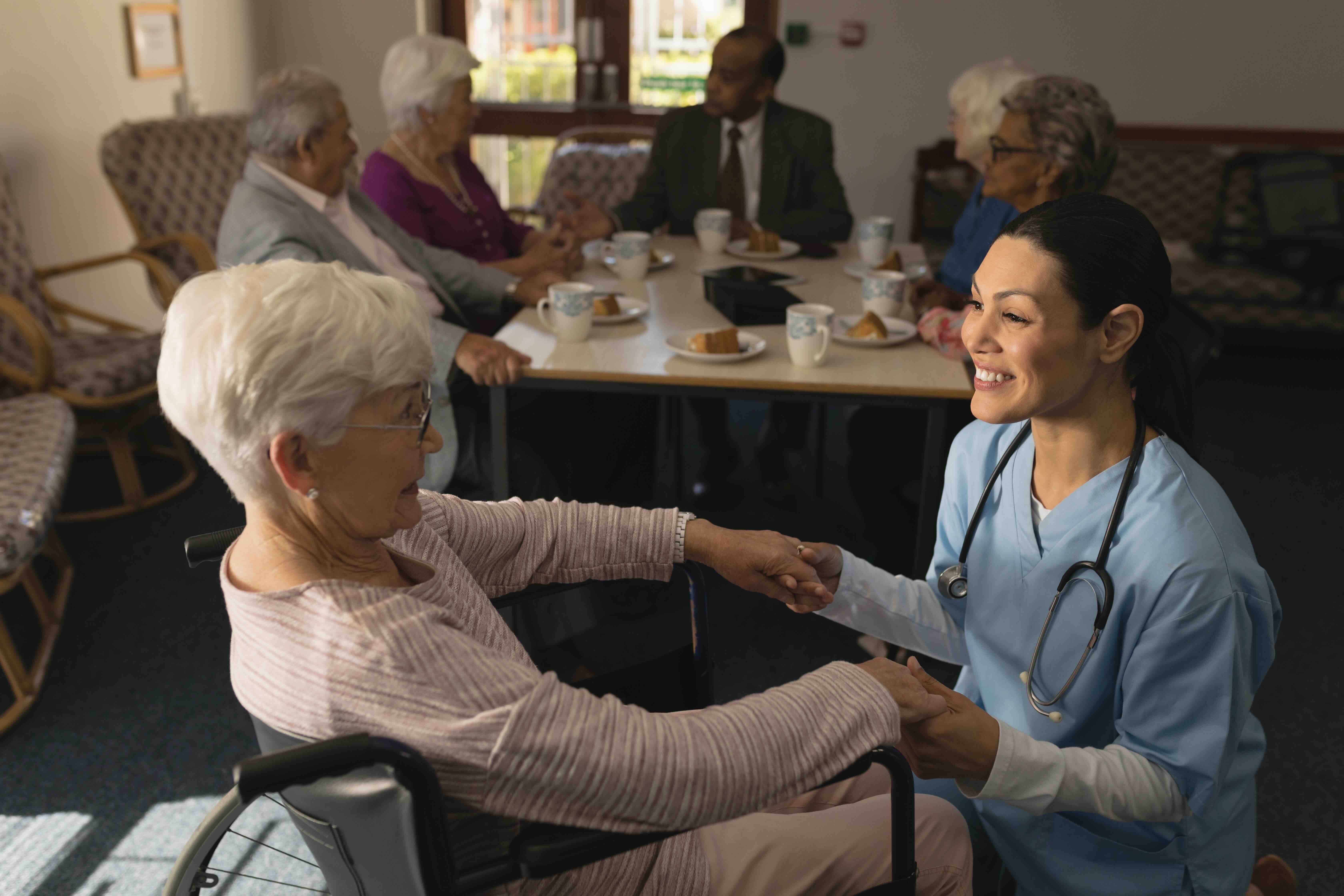Mental Health Awareness Month: Supporting Senior Well-Being
.webp)
Introduction
May is Mental Health Awareness Month, a time dedicated to recognizing the importance of mental wellness for people of all ages. While mental health conversations often focus on younger generations, it's vital to remember that seniors face unique emotional and psychological challenges too. When we take the time to understand, we have the power to make a real, lasting difference in their lives.
In this article, you'll learn why senior mental health awareness matters, how to recognize signs of struggle, and practical ways to support elderly loved ones. We'll also explore how tools like the Caily app can help families stay connected and take proactive steps.
The Importance of Senior Mental Health
Recent studies show that “nearly 20% of adults aged 55 and older experience some type of mental health concern”, says Mental Health America. Yet, many cases go undiagnosed or untreated due to stigma or lack of resources. Mental health for seniors is just as crucial as physical health, contributing significantly to overall well-being and quality of life.
Seniors commonly face mental health challenges like:
- Depression: From grief, loss of independence, or chronic illness.
- Anxiety: Stemming from health worries or isolation.
- Cognitive decline: Including memory issues and early dementia symptoms.
Catching mental health issues early makes it a lot easier to step in with the right kind of support, which can then keep them healthier, happier, and more connected to the people and activities they love.
Impact of Untreated Mental Health Issues
Left unaddressed, mental health struggles can lead to serious consequences:
- Worsened physical health: ”People with untreated mental health issues are at a higher risk of developing chronic health conditions such as heart disease, diabetes and obesity. The stress and anxiety associated with mental health problems can weaken the immune system, making the body more susceptible to illnesses”, according to Holy Hill Hospital.
- Higher rates of hospitalization: Centers for Disease Control and Prevention says, "Older adults with untreated depression are more likely to visit the emergency room or be hospitalized for non-psychiatric reasons."
- Increased risk of suicide: Seniors experiencing persistent emotional pain without support are at a higher risk of suicidal ideation and self-harm, often suffering silently due to stigma or isolation.
- Loss of independence: Mental health deterioration can impair daily functioning, making it harder for older adults to manage basic self-care, finances, and medications, increasing reliance on caregivers or facilities.
- Strained relationships: Untreated mental health conditions can cause withdrawal, irritability, or confusion, damaging connections with family, friends, and care providers, and increasing feelings of loneliness.
- Reduced quality of life: Persistent sadness, anxiety, or untreated cognitive issues can rob seniors of the joy, purpose, and engagement that are essential to living fully in later years.
Prioritizing elderly mental health support leads to fuller and healthier lives. A simple check-in or early intervention can spark transformations that improve quality of life.
Recognizing Mental Health Struggles in Seniors
One of the earliest signs of mental health decline is emotional withdrawal. Seniors may seem disengaged from activities they once loved or avoid social interactions, which is a serious red flag for underlying depression or anxiety.
Individuals should also watch for sudden shifts in behavioral and physical changes, including:
- Changes in sleep or appetite
- Increased irritability or confusion
- Neglect of personal hygiene
These symptoms could point to mental health challenges needing immediate attention.
The Stigma of Mental Health Discussions in Older Generations
Many older adults grew up in a time when discussing mental health was taboo. Admitting to emotional difficulties was often seen as a sign of weakness, and seeking professional help was either discouraged or misunderstood. This long-standing stigma can prevent seniors from expressing their struggles or reaching out for support, even when their need is urgent. Sensitive, respectful conversations are crucial to breaking down these barriers.
Talking about mental health can be tough, especially with older adults. That’s why it helps to lead with empathy, patience, and a good understanding of their cultural background. Instead of framing mental health care as fixing something that’s "wrong," try presenting it as just another part of overall wellness, like getting enough sleep or staying active. It makes the whole idea feel less intimidating.
When mental and emotional check-ins are treated like routine physical check-ins, it sends a message that discussing feelings is normal and brings relief. Simple conversations like this build trust, protect dignity, and foster more meaningful conversations.
Ways to Support Mental Wellness in Aging Loved Ones
Isolation is a major risk factor for poor mental health. There are many simple social activities for aging loved ones, such as:
- Book or craft clubs
- Community events through your local library or senior center
- Video calls with loved ones
- Technology classes
- Choir and musical groups
- Cooking, baking, art, or technology classes
- Pet therapy and animal meetups
Physical activity also supports mental wellness. Some ideas include:
- Yoga or walking groups
- Outdoor activities like gardening
- Dance or swimming classes
These habits are exciting, engaging, and an opportunity to make friends, ultimately strengthening both body and mind.

Offer Emotional Support and Open Conversations
Creating an environment where seniors feel safe to share their feelings can significantly enhance their mental well-being. Practice active listening, validate their experiences, and refrain from using dismissive language.
Seeking Professional Help When Needed
If signs of mental distress persist, don't hesitate to involve a professional. Therapists specializing in geriatric care or support groups for seniors can provide tailored help. You can find a licensed mental health provider who specializes in working with older adults through the Center for Mental Health and Aging website.
How Caily Chat Helps Keep Loved Ones Connected
The Caily app features Caily Chat, a simple, friendly messaging tool that keeps seniors engaged daily without feeling overwhelmed. With gentle reminders and easy-to-use messaging, older adults can maintain meaningful interactions. Family caregiving apps like Caily make it easy to involve multiple family members, ensuring that no one feels isolated. Everyone can share updates, encouragement, and care tasks seamlessly.
Frequent, heartfelt communication reminds seniors that they are valued and matter. Feeling seen and heard is one of the most powerful antidotes to loneliness and depression.
This Mental Health Awareness Month, make a commitment to the well-being of your aging loved ones. Understanding the importance of senior mental health awareness, recognizing the signs of struggle, and using tools like the Caily app to stay connected can transform lives.
Seeking a straightforward and effective way to help your loved one feel connected and heard? Learn more about Caily Chat and our other features on our website.

FAQs About Supporting Senior Wellness
How can families support senior mental health?
Families can support senior mental health by encouraging social engagement, monitoring for signs of mental distress, maintaining open communication, and using tools like Caily Chat to stay connected.
Why is mental health for seniors important?
Mental health for seniors is essential because it impacts their quality of life, physical health, and overall happiness. Addressing mental health issues early can prevent serious consequences like isolation, depression, and cognitive decline.
What activities are best for aging loved ones?
Engaging activities for aging loved ones include gardening, group exercise classes, book clubs, crafts, and video chats with family members. Keeping seniors socially and mentally active is key to promoting wellness.

Get Started Now
Enjoy full access to everything Caily offers, from medication tracking to shared schedules and daily check-ins. See how much easier caregiving can be when everything is coordinated in one place.
Start your free trial




.jpeg)

